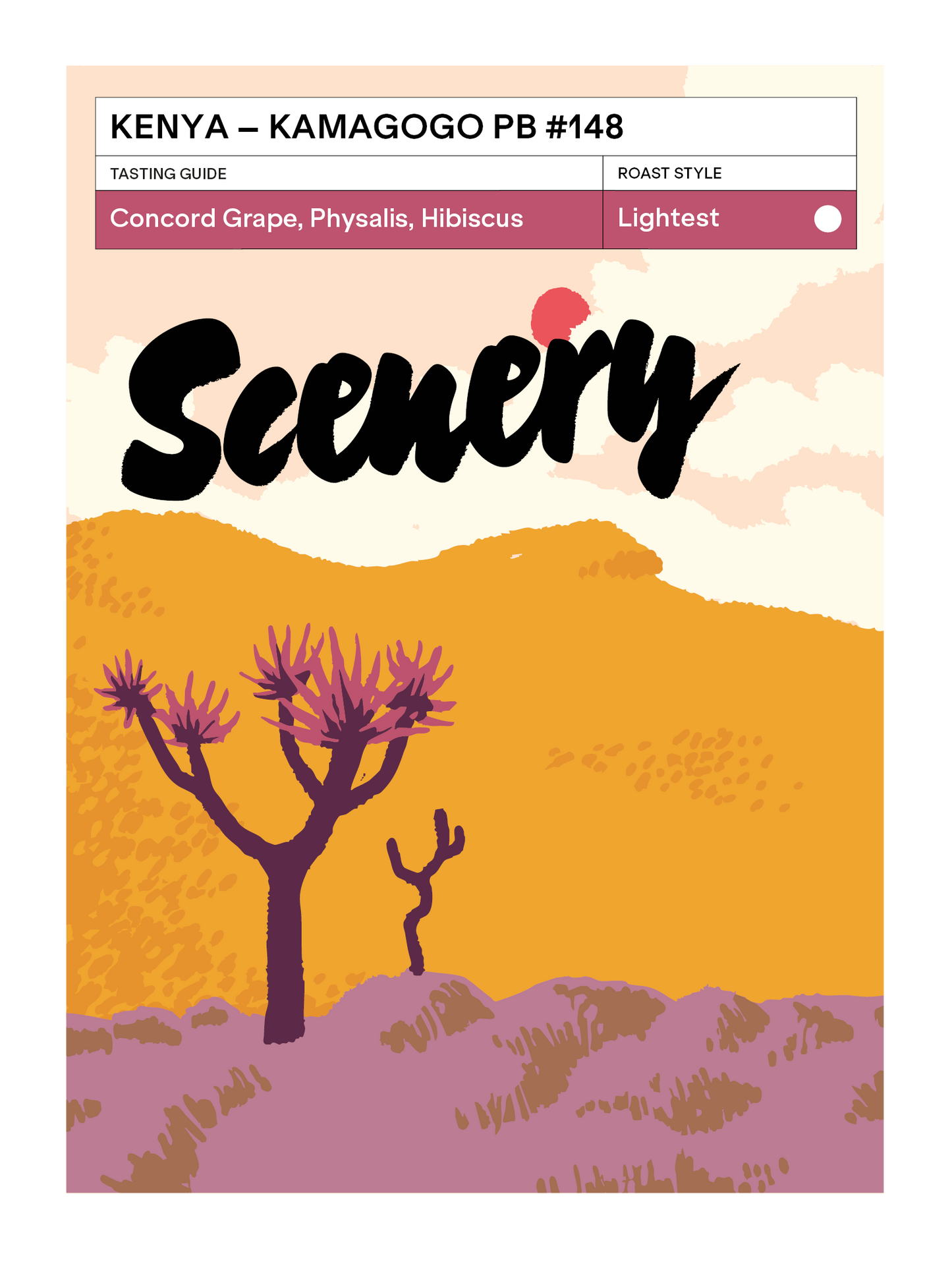
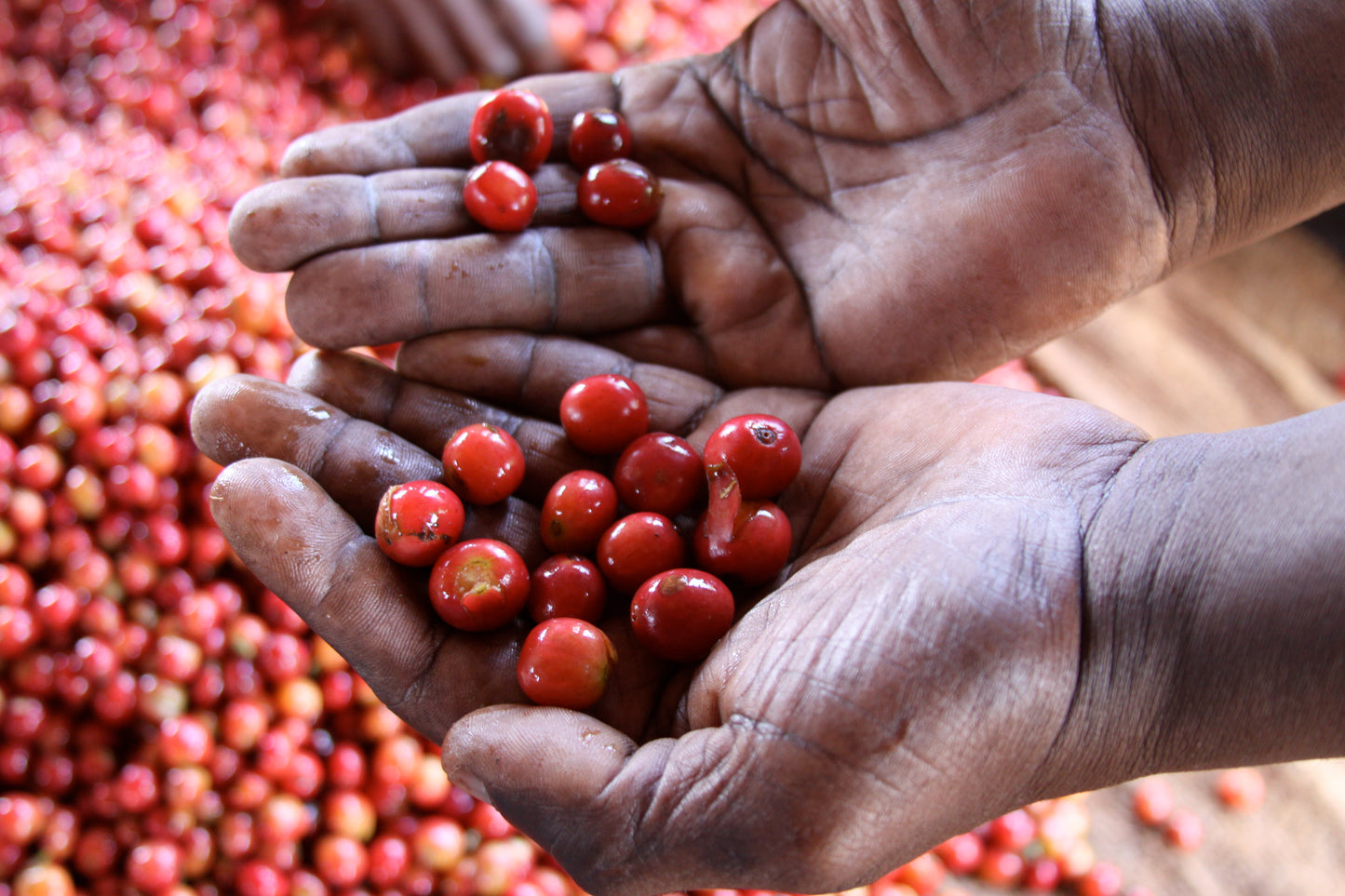
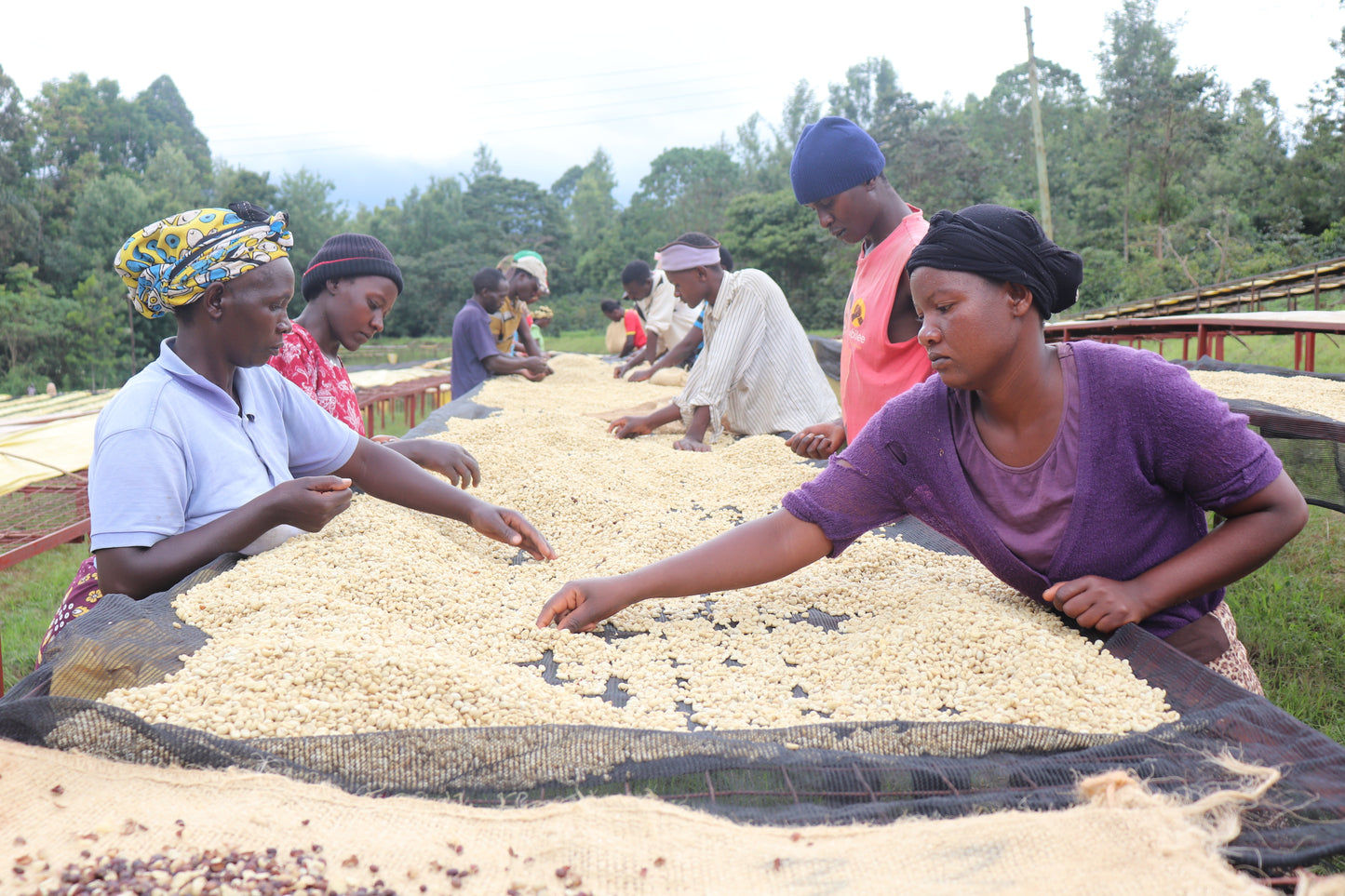
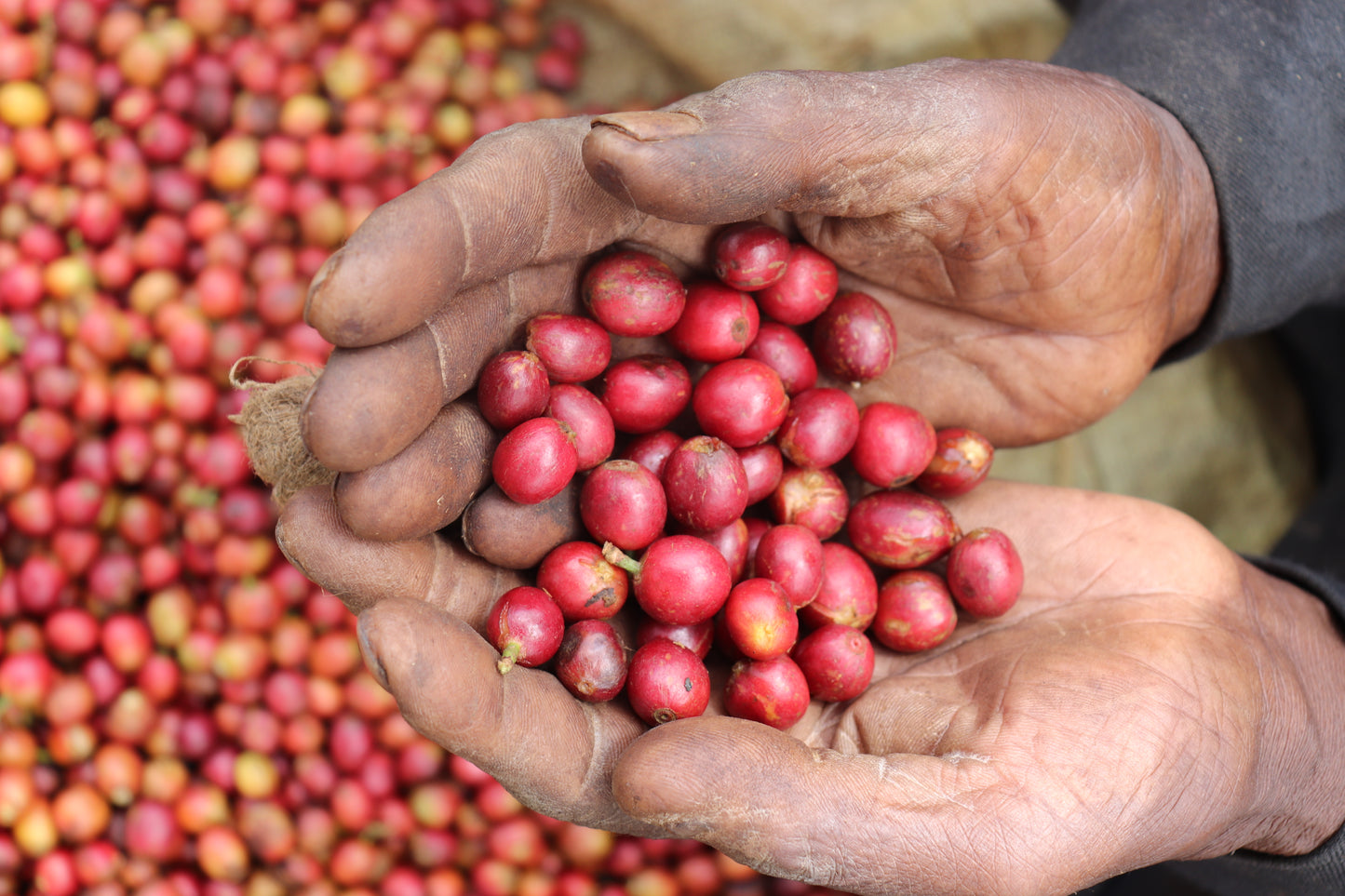
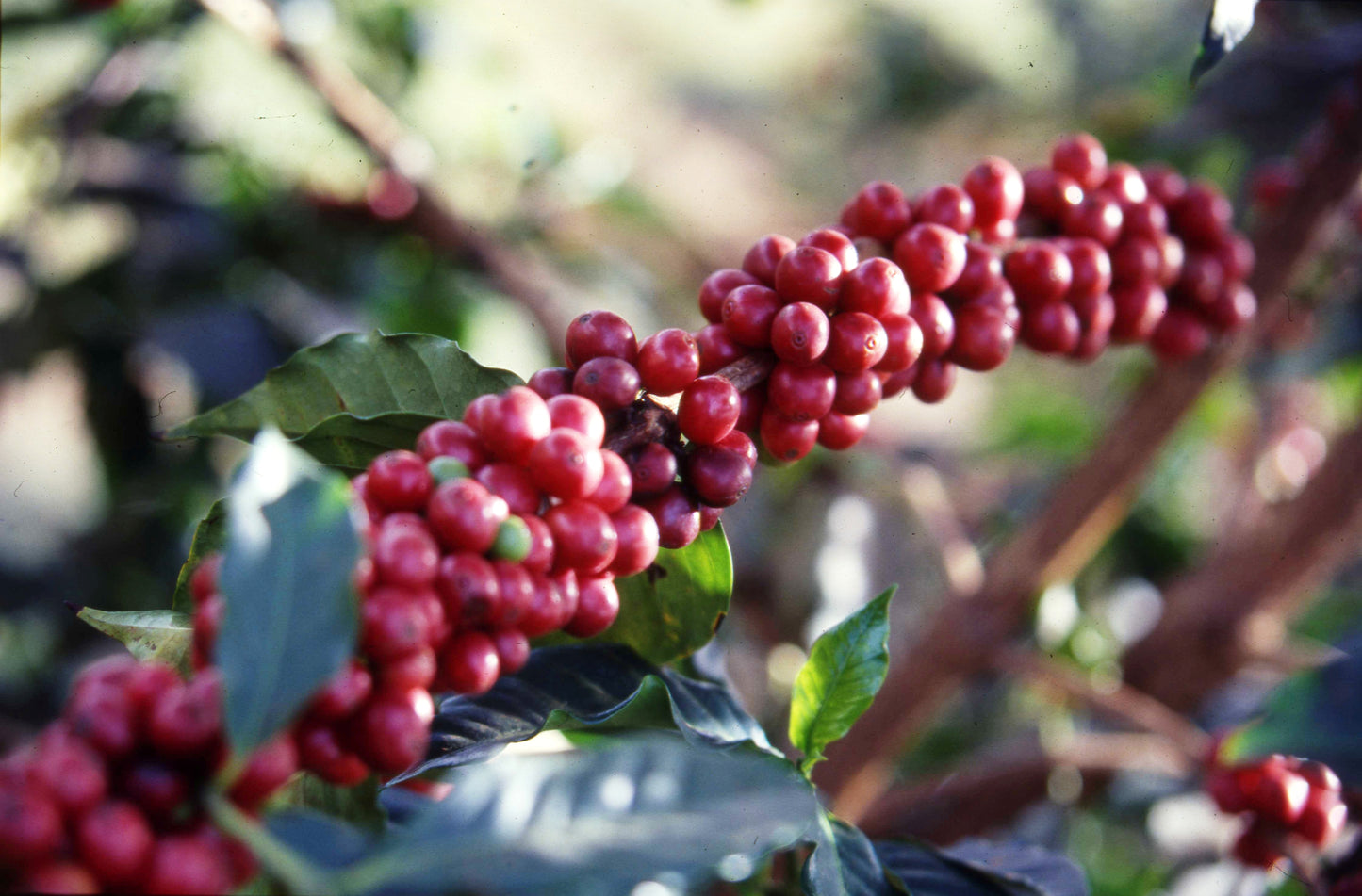
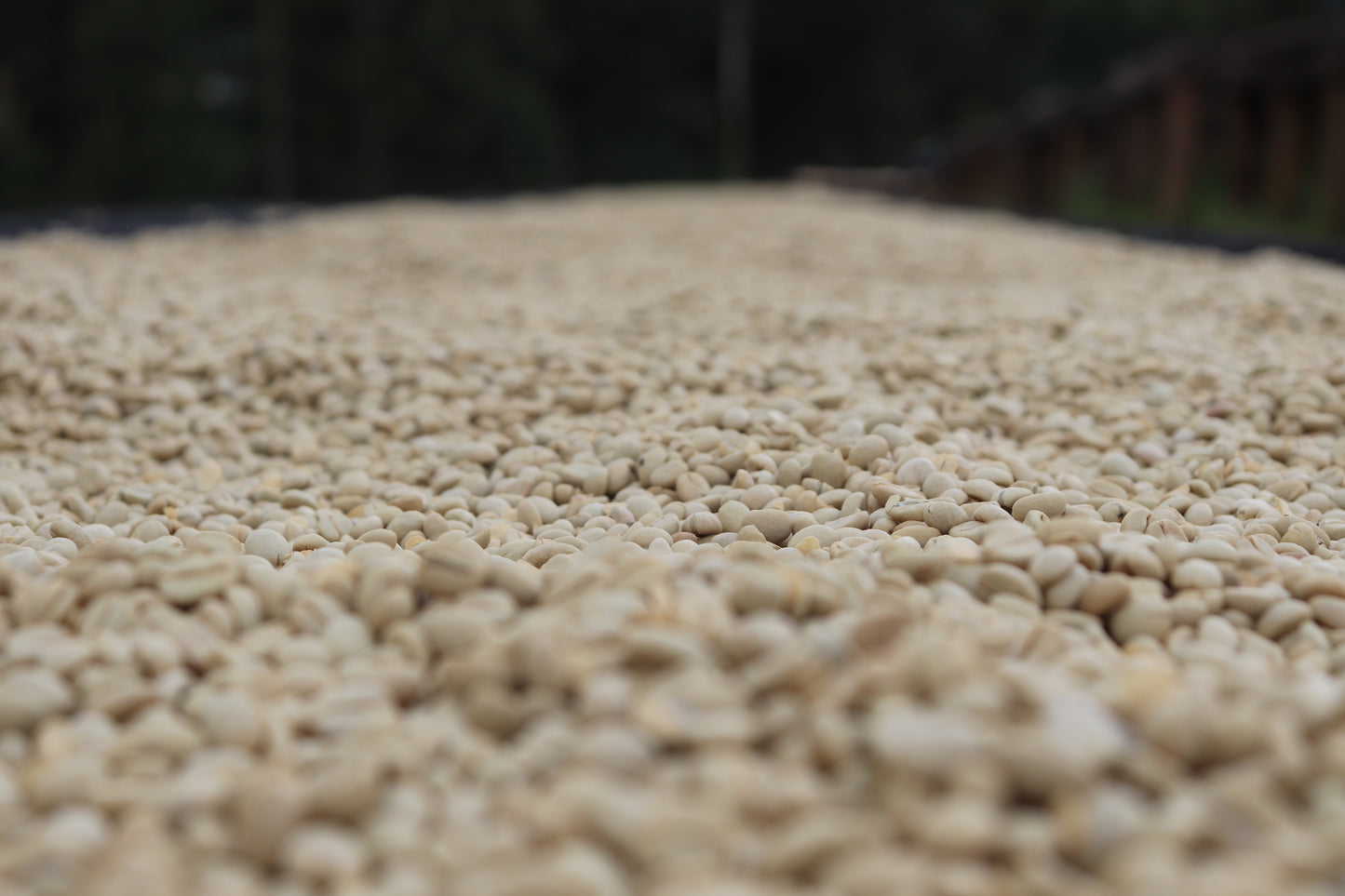
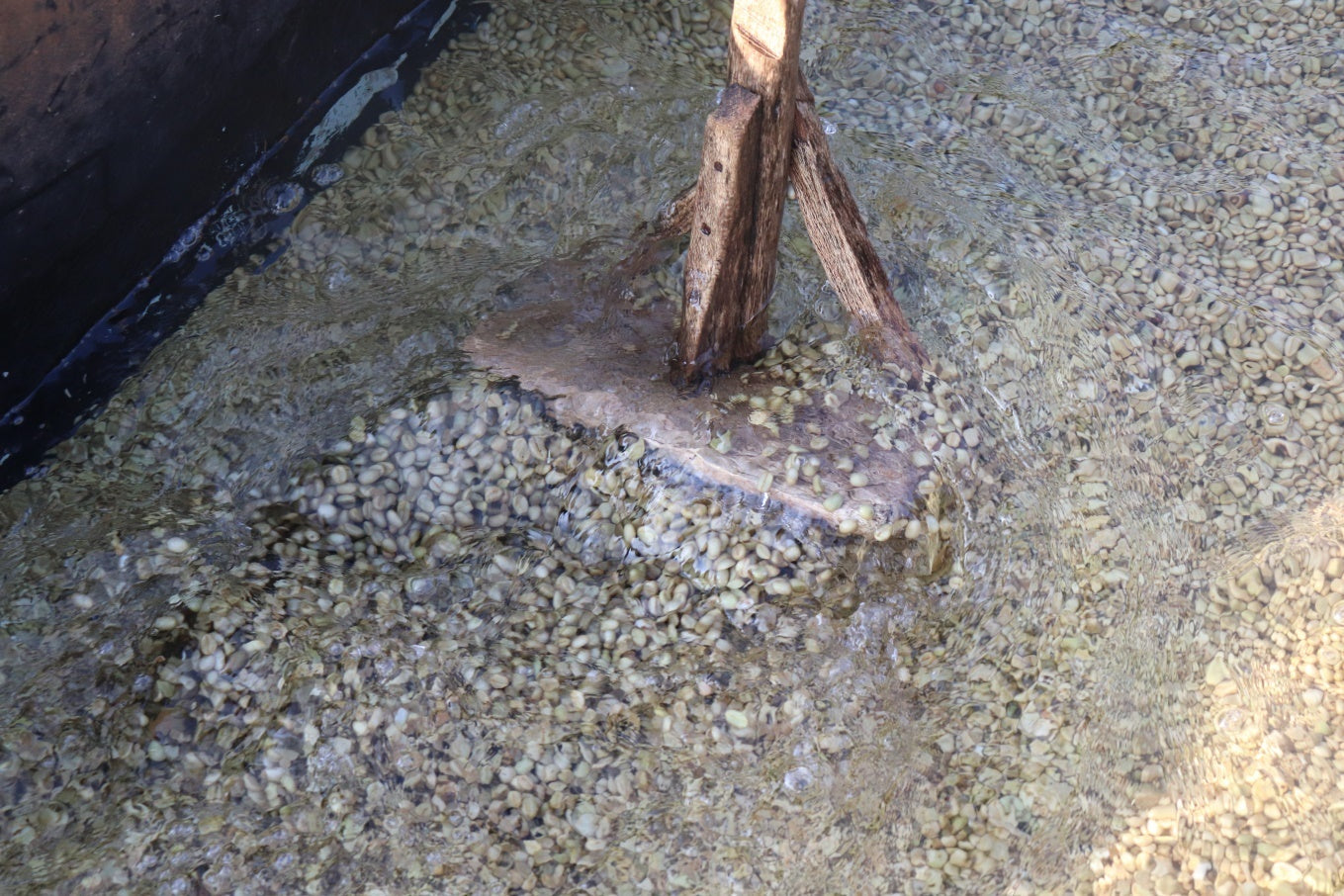
Brew Guide:
Best Brewed with: Filter
Lightest Roaster Influence: We're still refining our approach for the PB grade - the very dense and small seeds taking on heat in a different way to the larger AA/AB beans we typically release. As ever with Kenya we're going for screamingly fast roasts and aiming to get the best internal development at the lightest roast degree
Best Rested: 3-4 weeks
Filter: 62g/L & 96°C, with rest we like to move down to 93°C and 60g/L
Espresso: Turbo shots + 3 weeks rest. 18g/48g+ & 20s
We're tasting: Floral hibiscus tea and pomelo aromatics lead. In the cup - redcurrant and blood orange acidity hits first, followed by ruby grapefruit and physalis. Very bright and full of energy - sweet raspberry/blackberry alongside muscovado linger in the finish. As it cools, the cup develops into concord grape character, alongside blackcurrant cordial & a tropical hint of mango.
Traceability
Country of Origin: |
Kenya |
Region: |
Kagumoini, Murang’a County |
Producer: |
800 smallholders in the Kiru FCS |
Factory: |
Kamagogo |
Variety: |
SL-28, SL-34, Batian, Ruiru 11 (PB screensize) |
Elevation: |
Farm elevations - 1700 to 1900 MASL, Factory at 1800 MASL |
Process: |
Washed: Ripe coffees picked and delivered to Kamagogo, with pre-selection and sorting before pulping. During pulping, coffee is density sorted down channels into holding tanks.
The squeaky clean parchment is then soaked again in clean water prior to drying on raised beds, with the time spent soaking depending on the logistics/bed availability at the factory. Dried over 7-15 days |
Import Partner: |
Nordic Approach via Dormans |
Harvest |
Crop 24/25 - Arrived UK 28/07/25 New purchasing relationship |
The Story
Kenya 24/25 Crop:
We talked in the previous two years about the crisis in Kenyan coffee, and how especially the 23/24 crop year was a bit of a dud. But we've been stoked by everything we've seen and committed to so far from this latest crop - a real return of classic Kenyan flavours.
What makes 2025 different? Timing. The cherry maturation conditions aligned beautifully, with ideal pre-harvest rains leading to exceptional cherry development (irregular rains have become an intense problem in coffee production the world over, a distinct symptom of the climate crisis disrupting weather patterns).
While Kenya has struggled with production challenges in recent years, this season has delivered an unprecedented 60% of the harvest at AA grade - the largest screen size, which indicates just how happy the trees were during harvest. Contrast this to Brazil's recent harvest where there was extreme issues with drought and heat, producing a majority small-screen size harvest.
Kamagogo/Kiru FCS:
Kamagogo Coffee Factory was established in 1986 in Muranga County's central highlands. Located on the western slopes of the Aberdare Mountains, the 9-acre processing facility operates in what are traditionally tea-growing zones, where a cooler climate and rich red volcanic soils create the distinct growing conditions for which Kenya has been acclaimed.
The factory serves as one of four processing stations under the Kiru Farmers Cooperative Society, handling cherry deliveries from nearly 800 active smallholder farmers spread across the villages of Mathioya, Umbui, and Kagioini. Most farmers operate on plots smaller than one hectare, cultivating both the traditional but disease susceptible SL28 & SL34 varieties, alongside the lesser quality but more resilient Ruiru 11 and Batian. The cooperative structure allows these small-scale producers to access processing facilities and market channels that would be impossible to maintain individually.
Factory manager Stephen Ihugo oversees daily operations with five permanent staff members, managing a facility that has benefited from significant infrastructure investment in recent years. The cooperative has upgraded equipment including improved grading tables, advanced depulping machinery, and enhanced drying beds, while also installing water purification systems to prevent contamination of local freshwater sources during processing.
A key element of Kamagogo's operations is its long-term partnership with Coffee Management Services, an external agribusiness provider that works across Kenya's coffee sector. This relationship includes annual training for factory management, regular Good Agricultural Practice seminars for farmers, and crucially, pre-financing schemes that advance funds to farmers for school fees and farm inputs. This financial support addresses one of the chronic challenges facing smallholder coffee farmers, providing income stability between harvest seasons.
The technical support extends beyond CMS, with Ministry of Agriculture agronomists conducting regular field visits throughout the year to ensure new agricultural techniques are properly implemented. Demonstration plots at the factory serve as practical training grounds where farmers can observe best practices for coffee cultivation firsthand.
- Choosing a selection results in a full page refresh.
- Opens in a new window.







